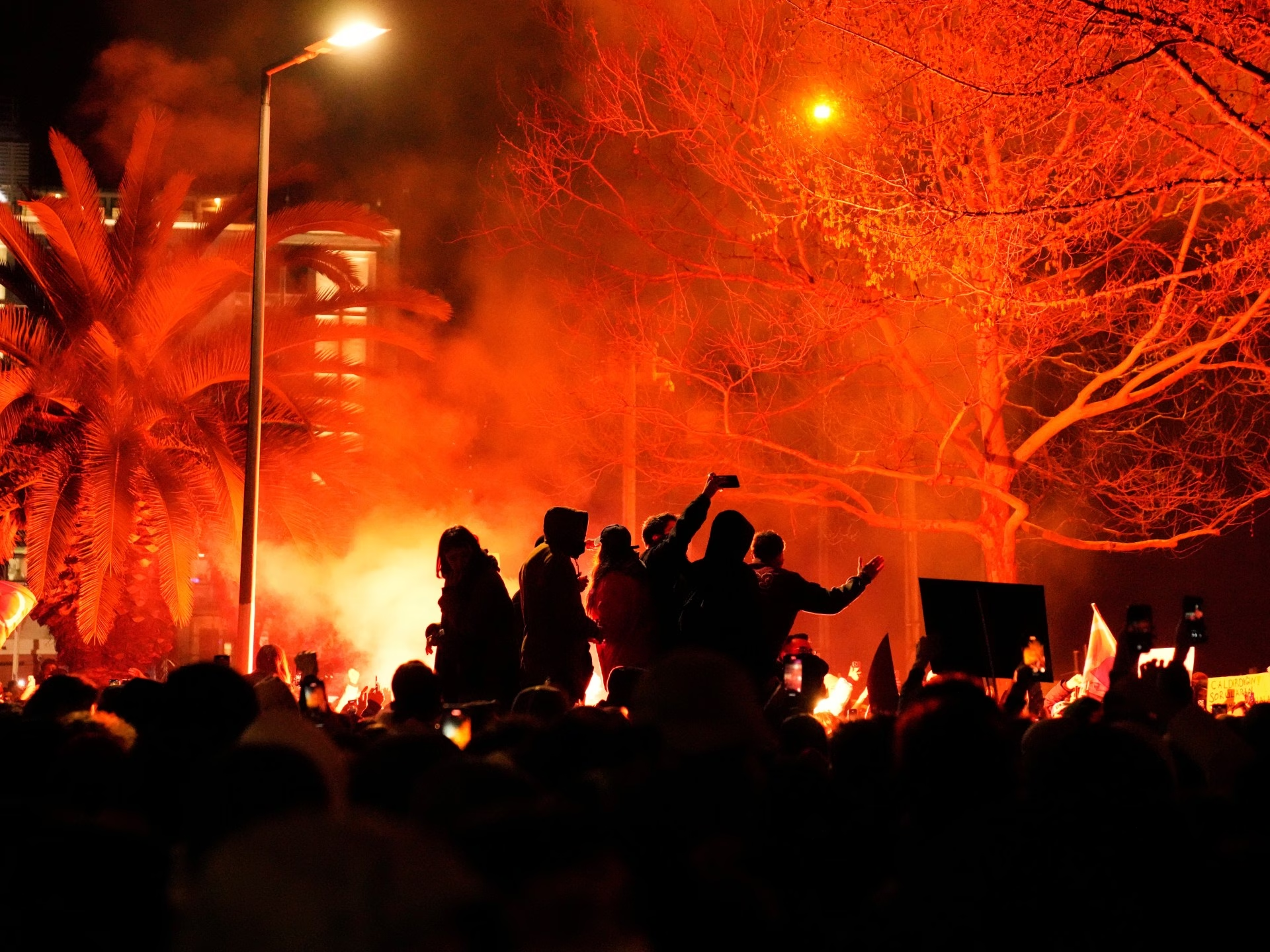Turkiye Protests: Mass Demonstrations Erupt Against Opposition Mayor’s Arrest
Protests have engulfed cities across Turkiye following the arrest of prominent opposition politician, Istanbul Mayor Ekrem Imamoglu, on charges of corruption and allegedly aiding an outlawed political group.
His detainment has led to the largest protests in the country in over a decade, with citizens defying gathering restrictions to show their support. The protests are seen as not only in defense of Imamoglu but as a broader expression of dissatisfaction with democracy, economic conditions, and social issues.
What’s Sparked the Protests in Turkiye?
Imamoglu, a potential candidate for the Republican People’s Party (CHP) in the 2028 presidential elections, was arrested on March 19, along with over 100 others. His supporters contend that the charges against him are politically motivated, aiming to prevent his candidacy. The scene has unfolded amid the backdrop of a larger crisis, with wider societal issues also fueling the anger on the streets.
Chronology of the Protests
The protests began immediately after Imamoglu’s arrest, with initial gatherings occurring at Istanbul University. They escalated on Saturday evening, marking the largest demonstrations to date.
Who is Ekrem Imamoglu and What Happened to Him?
Imamoglu, serving as Istanbul’s mayor since 2019 and re-elected in 2024, was arrested on allegations of corruption, bribery, and aiding terrorism. The charges include leading a criminal organization accused of systematic fraud and embezzlement, as well as alleged ties to the PKK, a group considered terrorist by Turkiye and international bodies.
Imamoglu denies these allegations, emphasizing the political nature of the accusations. The court initially ruled for his detention without bail on corruption charges, but dropped the “terrorism” charges, deciding against the appointment of a government trustee to the municipality.
What’s Next for Turkiye?
The protests highlight widespread discontent and critique of the political climate in Turkiye, where concerns over democracy, the economy, education, and healthcare systems abound. With President Recep Tayyip Erdogan condemning the protests as “street terror” and calling for the protection of public order, the situation remains tense. The government has pledged to take a hard stance against any disruption to societal peace.
The magnitude of the protests, with estimates suggesting over 300,000 participants, signify a significant moment of resistance. They recall the size and fervor of the 2013 Gezi Park protests, emphasizing the deep-seated issues within the society.
The political and social landscape looks towards the presidency and upcoming elections, set for 2028, though speculation about early elections is rife amid this political uncertainty.
Source: https://www.aljazeera.com/features/2025/3/23/why-are-there-protests-in-turkiye-what-to-know?traffic_source=rss







